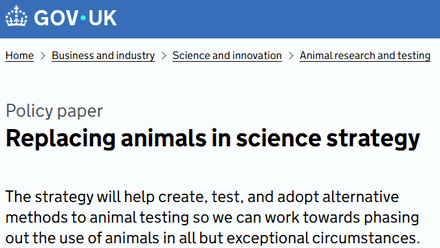Showcasing neuroscience research to MPs in Scotland
Earlier this week, the British Neuroscience Association (BNA) participated in an event in Edinburgh showcasing some of the exciting world-class research being done across Scotland in the biomedical, environmental and physical sciences. BNA President Professor Tara Spires-Jones was invited to take part in a panel to highlight the work being done at the UK Dementia Research Institute at the University of Edinburgh.
Science and Scotland
A large amount of policy is devolved to the Scottish Parliament, however UK Government policies that directly impact Scotland are considered by the Scottish Affairs Committee in the House of Commons. On 14 June 2023 the Committee launched an inquiry on Science and Scotland, which is looking at the international influence of Scottish Science and R&D, as well as how effectively UK Government money is spent on research and development within the scientific community.
The BNA submitted written evidence to this inquiry in September, in which we highlighted that neuroscience research in Scotland is helping to tackle the societal challenges we face in the future, Scotland’s links between academia, industry and NHS Scotland mean it is well placed to widen its contribution further, with researchers in Scotland internationally recognised for their contributions to advancing neuroscience research.
Understanding and targeting the brain changes that cause dementias
IMAGEIn this week's event held by the Committee, Tara took part in a panel to highlight different areas of biomedical research that Scotland is leading on. Tara and her group are working to understand and prevent the changes in synaptic connections in the brain that contribute to cognitive decline in Alzheimer’s disease and other dementias. During the progression of Alzheimer’s, synapses are lost and this is strongly linked to reduced memory and thinking abilities. The group has recently discovered that pathological clumps of the protein tau – which accumulates in pathology called tangles – spread through the brains of people with Alzheimer’s disease by jumping through synapses.
Wherever tangles appear in the brain, synapse and neuron death follows, contributing to the decline in cognitive ability. In their current work, the team is trying to understand mechanisms controlling this tau spread through synapses in order to develop ways to stop the spread of pathology. Stopping the spread of toxic tau is a promising strategy to stop the disease in its tracks.
Prof Tara Spires-Jones, Professor of Neurodegeneration and deputy director of the Centre for Discovery Brain Sciences at the University of Edinburgh, and BNA President said:
"This event was a fantastic opportunity to highlight to MPs the strength of neuroscience research in Scotland. The 'science speed dating' format of a 2 minute talk followed by questions allowed rapid fire coverage of several aspects of biomedical research. The Members of Parliament in attendance asked excellent questions about how best to support our research, and they enjoyed my 'prop' which was a small microscope that allowed them to see some of the tau pathology that I had talked about."

